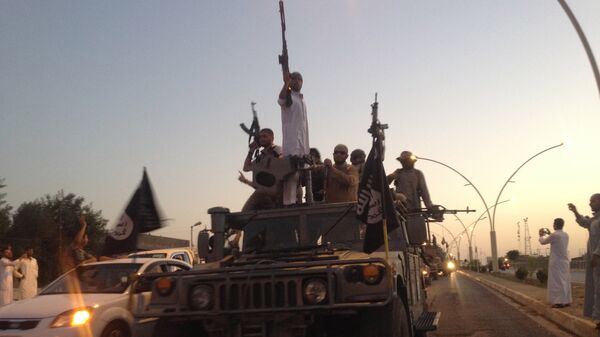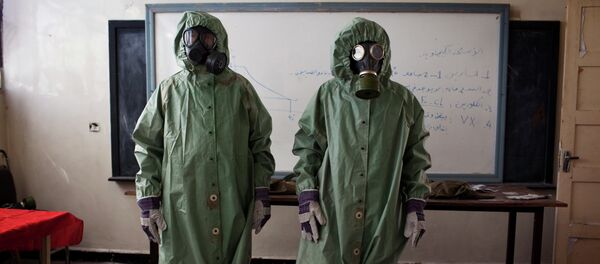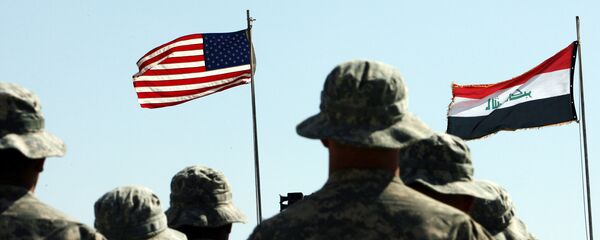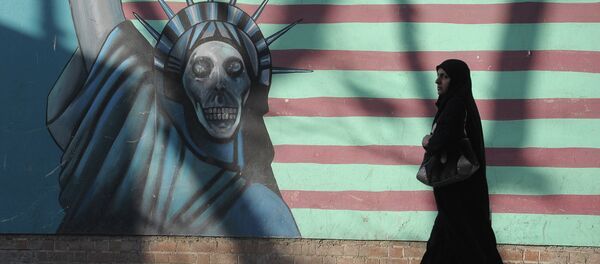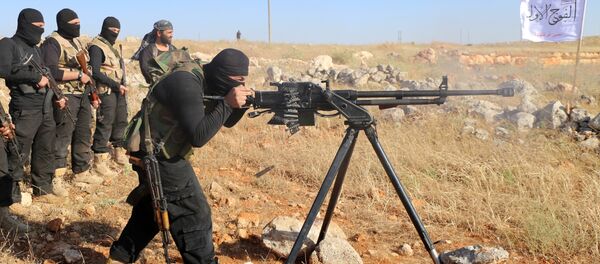"Once a serious terrorist attack occurs, such as the November 13 tragedy in Paris, or the Mali attack which followed a week later, the West and the Islamic world begin a fierce dispute to determine who is responsible for spreading the terrorist virus," the journalist notes.
Divide between #Muslims and the #West is exactly what #ISIS wants https://t.co/8xEET7vp3B #US #syriacrisis
— What They Say (@About_The_USA) 4 декабря 2015
"Each side kicks the ball to the other and displays his certificate of good conduct, declaring themselves as innocent. This goes on until the same scenario repeats again with another incident that shakes the world."
This 'verbal chaos', the journalist continues, "begins and ends without a clear and transparent answer that could form a solid background or at least a starting point for a serious attempt to fight terrorism in a unified front that gathers all those who believe and care about rescuing humanity from the terrorists' intentions."
With disagreements and disputes among extremist groups fading away before their aim to "destabilize the West and mercilessly punish it for 'fighting Islam'," the terrorists "strike Europe and the US with a severe force, but before that [they hurt] Muslims themselves, who are still unable to explain to the West and its allies that they are the first victim of religion's brokers who manipulate its texts."
Accordingly, Daesh (ISIL), Dessouki notes, "believes that it can take advantage of the fragmentation and disintegration between Westerners and Muslims." So far, they have been successful.
On the one hand, "Westerners say that Islam and its teachings are responsible for the spread of terrorism. Some Western powers go too far, calling for the expulsion of Muslims, denying entrance to Muslim refugees, burning mosques and Qurans, and other ugly, racist acts."
"Muslims, in turn," Dessouki notes, "continuously stress that terrorism is in fact a creation of the West and the US; that Washington and other Western powers support extremists, and use them as a manipulation tool."
This, the journalist says, leads Muslims to become "imprisoned by conspiracy theories, and the belief that the West is working hard day and night weaving plots against them and their religion, without admitting their own mistakes, which have also generated extremism that leads in the end to terrorism. They don't stand up against those liars who talk in the name of Islam, the religion of tolerance and humanity…Some of them are so offensive and insolent that they gloat over the Western victims and even the Muslim ones who don't share the same destructive extremist thoughts."
For its own part, the journalist continues, "the West should review its own history of domestic terrorism. Let's mention Timothy McVeigh, an American terrorist responsible for the Oklahoma City bombing which took the lives of 168 people, and injured hundreds more. McVeigh's atrocity was aimed against the federal government for killing 80 people of the Branch Dravidian religious group whose leader claimed to be Jesus Christ."
Furthermore, Dessouki notes, the West really has "been the initiator of terrorist organizations which it has employed in catastrophic plans to extend its influence and control over certain parts of the world, or in its conflict with other great powers. Syria is the present example."
According to the journalist, Europe and the West have been "hypnotized by the idea that they are the finest and best of humanity intellectually, ideologically, and technologically, and that hatred and envy are eating away at the hearts of Muslims."
Thus, "the West is also evading recognition of its faults, which are represented in its policies, military interventions, and destabilization of oppressed nations, transforming the latter's citizens into miserable refugees searching for a place to live."
"Therefore," the journalist concludes, "if they really want to destroy Daesh, then there is no escape from real cooperation, because the alternative would be mass destruction."
